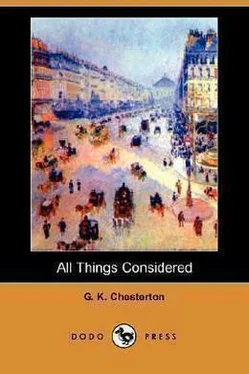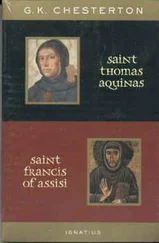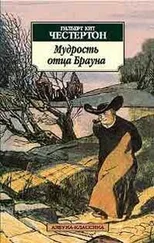Those three names lay my intellect prostrate. The rest of the argument I understand quite well. The social exclusiveness of aristocrats at Oxford and Cambridge gives way before the free spirit of competition amongst all classes. That is to say, there is at Oxford so hot and keen a struggle, consisting of coal–heavers, London clerks, gypsies, navvies, drapers' assistants, grocers' assistants—in short, all the classes that make up the bulk of England—there is such a fierce competition at Oxford among all these people that in its presence aristocratic exclusiveness gives way. That is all quite clear. I am not quite sure about the facts, but I quite understand the argument. But then, having been called upon to contemplate this bracing picture of a boisterous turmoil of all the classes of England, I am suddenly asked to accept as example of it, Lord Milner, Lord Curzon, and the present Chancellor of the Exchequer. What part do these gentlemen play in the mental process? Is Lord Curzon one of the rugged and ragged poor men whose angularities have been rubbed away? Or is he one of those whom Oxford immediately deprived of all kind of social exclusiveness? His Oxford reputation does not seem to bear out either account of him. To regard Lord Milner as a typical product of Oxford would surely be unfair. It would be to deprive the educational tradition of Germany of one of its most typical products. English aristocrats have their faults, but they are not at all like Lord Milner. What Mr. Asquith was meant to prove, whether he was a rich man who lost his exclusiveness, or a poor man who lost his angles, I am utterly unable to conceive.
There is, however, one mild but very evident truth that might perhaps be mentioned. And it is this: that none of those three excellent persons is, or ever has been, a poor man in the sense that that word is understood by the overwhelming majority of the English nation. There are no poor men at Oxford in the sense that the majority of men in the street are poor. The very fact that the writer in the Outlook can talk about such people as poor shows that he does not understand what the modern problem is. His kind of poor man rather reminds me of the Earl in the ballad by that great English satirist, Sir W.S. Gilbert, whose angles (very acute angles) had, I fear, never been rubbed down by an old English University. The reader will remember that when the Periwinkle–girl was adored by two Dukes, the poet added—
"A third adorer had the girl,
A man of lowly station;
A miserable grovelling Earl
Besought her approbation."
Perhaps, indeed, some allusion to our University system, and to the universal clash in it of all the classes of the community, may be found in the verse a little farther on, which says—
"He'd had, it happily befell,
A decent education;
His views would have befitted well
A far superior station."
Possibly there was as simple a chasm between Lord Curzon and Lord Milner. But I am afraid that the chasm will become almost imperceptible, a microscopic crack, if we compare it with the chasm that separates either or both of them from the people of this country.
Of course the truth is exactly as the Bishop of Birmingham put it. I am sure that he did not put it in any unkindly or contemptuous spirit towards those old English seats of learning, which whether they are or are not seats of learning, are, at any rate, old and English, and those are two very good things to be. The Old English University is a playground for the governing class. That does not prove that it is a bad thing; it might prove that it was a very good thing. Certainly if there is a governing class, let there be a playground for the governing class. I would much rather be ruled by men who know how to play than by men who do not know how to play. Granted that we are to be governed by a rich section of the community, it is certainly very important that that section should be kept tolerably genial and jolly. If the sensitive man on the Outlook does not like the phrase, "Playground of the rich," I can suggest a phrase that describes such a place as Oxford perhaps with more precision. It is a place for humanising those who might otherwise be tyrants, or even experts.
To pretend that the aristocrat meets all classes at Oxford is too ludicrous to be worth discussion. But it may be true that he meets more different kinds of men than he would meet under a strictly aristocratic regime of private tutors and small schools. It all comes back to the fact that the English, if they were resolved to have an aristocracy, were at least resolved to have a good–natured aristocracy. And it is due to them to say that almost alone among the peoples of the world, they have succeeded in getting one. One could almost tolerate the thing, if it were not for the praise of it. One might endure Oxford, but not the Outlook .
When the poor man at Oxford loses his angles (which means, I suppose, his independence), he may perhaps, even if his poverty is of that highly relative type possible at Oxford, gain a certain amount of worldly advantage from the surrender of those angles. I must confess, however, that I can imagine nothing nastier than to lose one's angles. It seems to me that a desire to retain some angles about one's person is a desire common to all those human beings who do not set their ultimate hopes upon looking like Humpty–Dumpty. Our angles are simply our shapes. I cannot imagine any phrase more full of the subtle and exquisite vileness which is poisoning and weakening our country than such a phrase as this, about the desirability of rubbing down the angularities of poor men. Reduced to permanent and practical human speech, it means nothing whatever except the corrupting of that first human sense of justice which is the critic of all human institutions.
It is not in any such spirit of facile and reckless reassurance that we should approach the really difficult problem of the delicate virtues and the deep dangers of our two historic seats of learning. A good son does not easily admit that his sick mother is dying; but neither does a good son cheerily assert that she is "all right." There are many good arguments for leaving the two historic Universities exactly as they are. There are many good arguments for smashing them or altering them entirely. But in either case the plain truth told by the Bishop of Birmingham remains. If these Universities were destroyed, they would not be destroyed as Universities. If they are preserved, they will not be preserved as Universities. They will be preserved strictly and literally as playgrounds; places valued for their hours of leisure more than for their hours of work. I do not say that this is unreasonable; as a matter of private temperament I find it attractive. It is not only possible to say a great deal in praise of play; it is really possible to say the highest things in praise of it. It might reasonably be maintained that the true object of all human life is play. Earth is a task garden; heaven is a playground. To be at last in such secure innocence that one can juggle with the universe and the stars, to be so good that one can treat everything as a joke—that may be, perhaps, the real end and final holiday of human souls. When we are really holy we may regard the Universe as a lark; so perhaps it is not essentially wrong to regard the University as a lark. But the plain and present fact is that our upper classes do regard the University as a lark, and do not regard it as a University. It also happens very often that through some oversight they neglect to provide themselves with that extreme degree of holiness which I have postulated as a necessary preliminary to such indulgence in the higher frivolity.
Humanity, always dreaming of a happy race, free, fantastic, and at ease, has sometimes pictured them in some mystical island, sometimes in some celestial city, sometimes as fairies, gods, or citizens of Atlantis. But one method in which it has often indulged is to picture them as aristocrats, as a special human class that could actually be seen hunting in the woods or driving about the streets. And this never was (as some silly Germans say) a worship of pride and scorn; mankind never really admired pride; mankind never had any thing but a scorn for scorn. It was a worship of the spectacle of happiness; especially of the spectacle of youth. This is what the old Universities in their noblest aspect really are; and this is why there is always something to be said for keeping them as they are. Aristocracy is not a tyranny; it is not even merely a spell. It is a vision. It is a deliberate indulgence in a certain picture of pleasure painted for the purpose; every Duchess is (in an innocent sense) painted, like Gainsborough's "Duchess of Devonshire." She is only beautiful because, at the back of all, the English people wanted her to be beautiful. In the same way, the lads at Oxford and Cambridge are only larking because England, in the depths of its solemn soul, really wishes them to lark. All this is very human and pardonable, and would be even harmless if there were no such things in the world as danger and honour and intellectual responsibility. But if aristocracy is a vision, it is perhaps the most unpractical of all visions. It is not a working way of doing things to put all your happiest people on a lighted platform and stare only at them. It is not a working way of managing education to be entirely content with the mere fact that you have (to a degree unexampled in the world) given the luckiest boys the jolliest time. It would be easy enough, like the writer in the Outlook , to enjoy the pleasures and deny the perils. Oh what a happy place England would be to live in if only one did not love it!
Читать дальше








